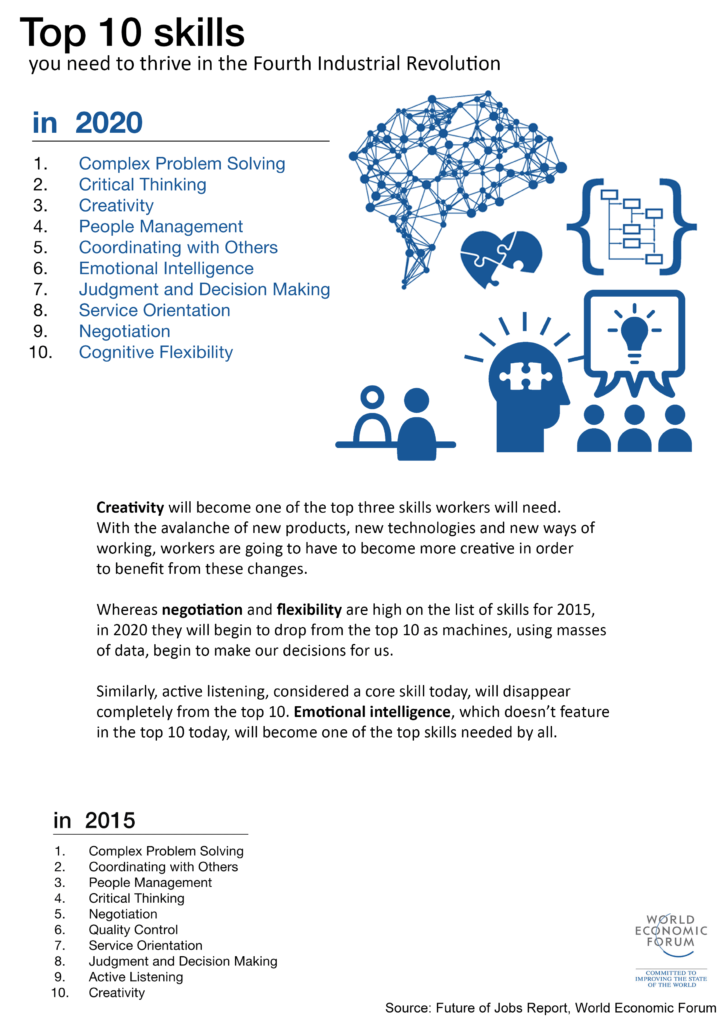- 35% of skills considered important today will change
- the main tendences are : advanced robotics and autonomous transport, artificial intelligence and machine learning, advanced materials, biotechnology and genomics
- get the report with the future of jobs
- the nature of the change will depend very much on the industry itself
- robots may help us get to where we want to be faster, but they can’t be as creative as humans (yet)
- creativity will become one of the top three skills workers will need
- emotional intelligence, which doesn’t feature in the top 10 today, will become one of the top skills needed by all
- the financial services and investment sector, however, has yet to be radically transformed
- artificial intelligence, 3D printing and advanced materials are still in their early stages of use, but the pace of change will be fast
SKILLS
- Complex problem solving (jobs)
- Critical Thinking (jobs)
- Creativity (jobs)
- People management (jobs)
- Coordinating with others (jobs)
- Emotional Intelligence (jobs)
- Judgement and decision making (jobs)
- Service orientation (jobs)
- Negotiation (jobs)
- Cognitive flexibility (jobs)
source WEF
skill
[skil]
noun
1. the ability, coming from one’s knowledge, practice, aptitude, etc., to do something well:
Carpentry was one of his many skills.
2. competent excellence in performance; expertness; dexterity:
The dancers performed with skill.
3. a craft, trade, or job requiring manual dexterity or special training in which a person has competence and experience:
the skill of cabinetmaking.
4. Obsolete. understanding; discernment.
5. Obsolete. reason; cause.

Leave a Reply